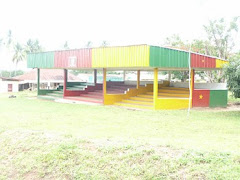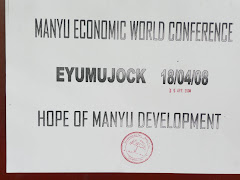 In educational cycles, it is generally accepted that competence and commitment of teachers should be the most important determinant of learning outcomes. However, it is difficult to find any systematic studies that have been undertaken on motivational and incentive issues among teachers in Cameroon. Furthermore, it has not been possible to find a study that tracks levels and determinants of teacher motivation and deployment to schools in different parts of the country such as Manyu. Nonetheless, there is strong generalization to conclude, the standards of education in Manyu division are on a downward spiral. Solid evidence based on current GCE results and that of a few years back point a bleak picture. The truth of the matter is educational standards in Manyu schools are actually declining and the long term impact on the social and economic development of the division will be felt for many years, a situation which calls for prompt and impacting intervention.
In educational cycles, it is generally accepted that competence and commitment of teachers should be the most important determinant of learning outcomes. However, it is difficult to find any systematic studies that have been undertaken on motivational and incentive issues among teachers in Cameroon. Furthermore, it has not been possible to find a study that tracks levels and determinants of teacher motivation and deployment to schools in different parts of the country such as Manyu. Nonetheless, there is strong generalization to conclude, the standards of education in Manyu division are on a downward spiral. Solid evidence based on current GCE results and that of a few years back point a bleak picture. The truth of the matter is educational standards in Manyu schools are actually declining and the long term impact on the social and economic development of the division will be felt for many years, a situation which calls for prompt and impacting intervention.For most University and Secondary school graduates in African countries, teaching has become employment of the last resort. Consequently, some teachers often lack a strong long term commitment to the vocation. Quite often the status and pay of a primary school teacher is much lower. Thus becoming a secondary school teacher with higher pay stands out as an avenue for social and economic advancement. This trend has important implications for the development of a critical mass of competent and experience teachers in primary schools and this is where early learning begins.
Secondary School Students.
 In areas like Manyu, the problem is exacerbated because teachers at both the secondary and primary level refuse to teach in certain communities due to many prevailing infrastructure problems, notably bad roads, acute electricity, water shortages and finally pay incentives. In general, the motivation for teachers at the public education system to perform well is frequently weak due to ineffective incentives and standards. Low pay forces large proportion of teachers to earn secondary income from other sources such as private tutoring. Where teachers bribe to secure employment and desired postings, this may also impact on job commitment and motivation. In these situations, teachers do not feel accountable to school Principals, parents or the wider community. Being posted to a rural school is therefore likely to de-motivate the teacher, and with a low proportion of qualified teachers in rural areas, this amounts to lower standards and failing grades. Another problem is teacher absenteeism due to poor motivation and lack of accountability. As compared to private schools, absenteeism is lower because sanctions are imposed for those absent with no legitimate reasons.
In areas like Manyu, the problem is exacerbated because teachers at both the secondary and primary level refuse to teach in certain communities due to many prevailing infrastructure problems, notably bad roads, acute electricity, water shortages and finally pay incentives. In general, the motivation for teachers at the public education system to perform well is frequently weak due to ineffective incentives and standards. Low pay forces large proportion of teachers to earn secondary income from other sources such as private tutoring. Where teachers bribe to secure employment and desired postings, this may also impact on job commitment and motivation. In these situations, teachers do not feel accountable to school Principals, parents or the wider community. Being posted to a rural school is therefore likely to de-motivate the teacher, and with a low proportion of qualified teachers in rural areas, this amounts to lower standards and failing grades. Another problem is teacher absenteeism due to poor motivation and lack of accountability. As compared to private schools, absenteeism is lower because sanctions are imposed for those absent with no legitimate reasons.The educational sub-committee of the first Manyu world conference in 1996 had as a term of reference to seek ways and means of promoting academic excellence. In its final report, the sub-committee suggested the following ways to redress the situation:
a) Equip schools with libraries, workshops and functional laboratories. The public should be involved in motivating our children in science based professional, vocational and technical careers. Improve the academic staff in our institutions by providing funds for teachers in disciplines that are related to desired careers.
b) Creation of academic foundations, even those at local levels could be encouraged to promote academic excellence e.g. Dr. Mengot Foundation.
c) Manyu sons and daughters teaching outside must be prepared to come back home whenever they are, to enhance performance in certain fields.
d) Finally, the committee recommended the processing of documents for the acquisition of a plot and the approval of the opening the Manyu polytechnic.
Almost twelve years later, the Manyu economic development world conference met in Eyumojock in 2008. This time around the education committee had a term of reference “poor performance in Manyu schools and how this can be avoided”. The committee identified three problems; lack of teachers, hostile environment and lack of motivation and low pay for PTA teachers. Here are some of the proposed solutions:
a) Training programs to motivate teachers should be organized as well as sourcing for necessary funds.
b) Meritorious Manyu teachers should be awarded certificates of excellence so as to motivate them.
c) Teachers should inculcate a culture of commitment and patriotism.
d) Everybody in society should partake in the training of children.
Based on these committee reports, we recognized the issue of falling standards in our schools almost a decade ago. It is true that lowly qualified and ill motivated teachers will never provide the quality of education needed. There is also evidence of lack of proper infrastructure and congenial environment for effective learning especially with schools in our rural areas. School fees are a barrier especially to our kids from poor backgrounds. Unlike fifteen years ago when the only secondary high school was in Mamfe town with good infrastructure and teachers, most of our students attend government sponsored schools in villages.
MEDWC donates technology equipment to area schools.
 In order to tackle the falling standards of education in Manyu since most schools are now in our rural communities, we must initiate innovation that could help schools excel in exams to enable the division take its prime position in the educational records of the country. Parents and stakeholders need to exercise control over headmasters, principals and teachers by attending PTA meetings and contributing to infrastructure development. Manyu politicians and those in positions of influence must address entrenched teacher deployment policies in Manyu. Effective decentralization over staffing is the, most effective way of ensuring a more transparent, equitable and efficient deployment of teachers to Manyu urban and area schools. The system should not only force Manyu indigenes to teach in their land of birth but also encourage and motivate them with incentives.
In order to tackle the falling standards of education in Manyu since most schools are now in our rural communities, we must initiate innovation that could help schools excel in exams to enable the division take its prime position in the educational records of the country. Parents and stakeholders need to exercise control over headmasters, principals and teachers by attending PTA meetings and contributing to infrastructure development. Manyu politicians and those in positions of influence must address entrenched teacher deployment policies in Manyu. Effective decentralization over staffing is the, most effective way of ensuring a more transparent, equitable and efficient deployment of teachers to Manyu urban and area schools. The system should not only force Manyu indigenes to teach in their land of birth but also encourage and motivate them with incentives.



























No comments:
Post a Comment